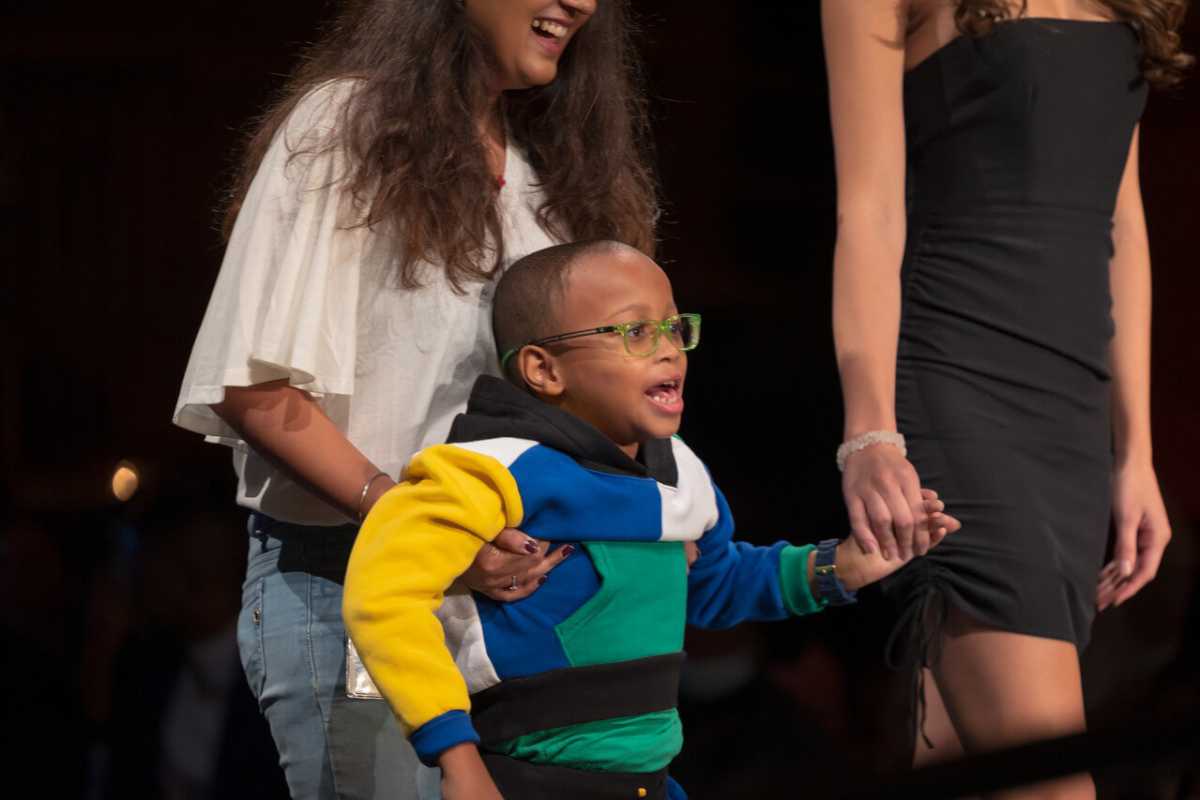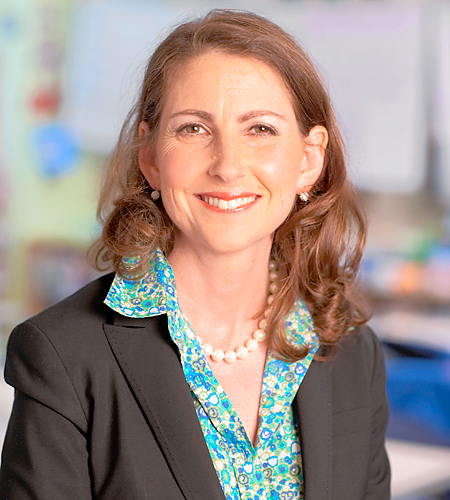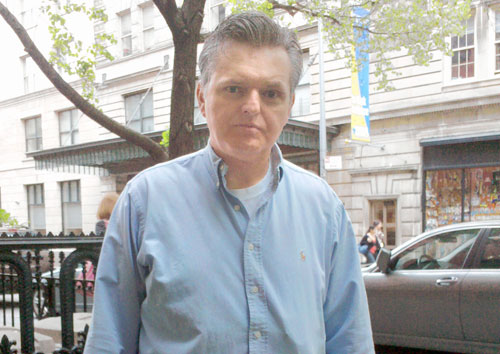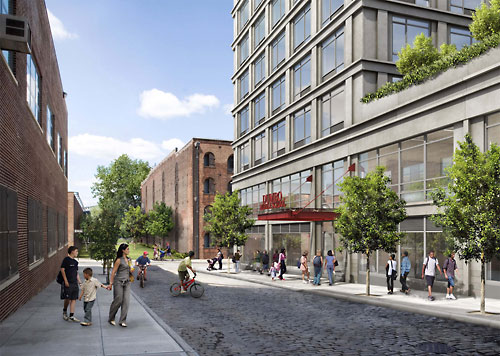Students from the International Institute for the Brain, or iBRAIN — a specialized school with a flagship campus on Manhattan’s Upper West Side and a brand-new location in Sunset Park — kicked off New York Fashion Week last week with the iCAN Do Anything Fashion show, taking to the runway in designs made with and for each student.
“The idea came about from a collective of, just, generically, the mindset of our staff and our families and our kids is, while we’re not going to create false expectations, we’re not going to set arbitrary limitations on what our kids can and can’t do,” said Patrick Donahue, iBRAIN’s founder. “Being in New York, which is kind of the epicenter of fashion, it seemed like a natural next step to kind of showcase our kids, and allow them to be the supermodels for the day.”
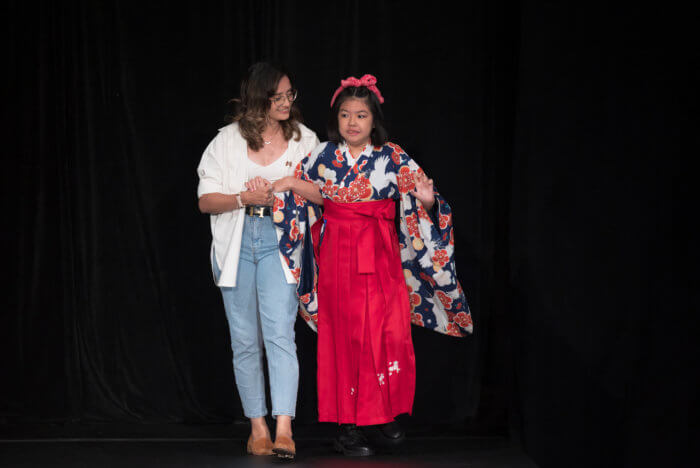
Donahue founded iBRAIN’s first location in the Upper West Side in 2013, nine years after his now 17-year-old daughter Sarah Jane was left with severe brain damage after she was shaken by a Lenox Hill Hospital nurse just days after she was born. The Sunset Park campus opened last spring. The school offers small class sizes, one-on-one support and education plans, and a host of supportive services and therapies for students and their families.
The school partnered with a local fashion designer Jeffrey Ampratwum, whose team worked with each individual student to create an outfit that suited their likes and needs — many students-turned-models at iBRAIN use mobility devices or other assistive technology, and need clothing that works with their tech, not against it. Students, accompanied by their friends, family members, or volunteer professional models, sailed down the runway in brightly-colored dresses, patterned vests and classic varsity-style jackets.
It was a “magical night,” Donahue said.
“To see the pride in the kids as some of them strutted down the runway, some of them were escorted down the runway in a chair … just the smiles and the pride that they had, and the families had, and the audience, it was just a magical night,” he said.
The Sept. 8 show was iBRAIN’s first foray into the fashion world, but certainly not its last.
“We’re going to make this an annual event, the plan for next year is to coordinate and partner with all the various different fashion houses in the New York area so they themselves can work with each student,” Donahue said. “One student may have a Ralph Lauren outfit that’s designed with that fashion house, the other one may have a Perry Ellis, Nicole Miller, so on and so forth.”
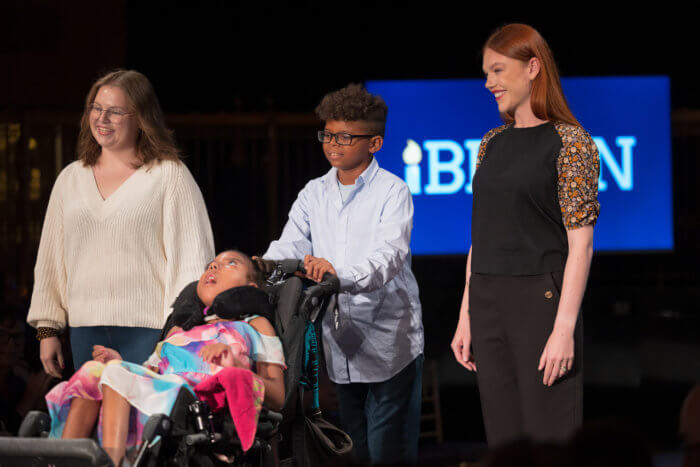
The fashion show, which was followed by a cocktail hour and silent auction, raised around $100,000 for the school and a new project: the iBRAIN fashion lab. The lab will have an eye toward next year’s fashion show, Donahue said, and on changing the fashion industry as a whole, by “looking to collaborate with various different manufacturers and designers so we can look to design clothing that’s more accessible for these very unique individuals.”
Some of iBRAIN’s students have G-tubes, Donahue explained, or wear braces on their feet and legs, or have motor skill issues that make dealing with regular buttons and other fastenings difficult. Most clothing brands don’t factor those needs into their designs.
“There’s already stuff out there, but our goal is to build [the lab] into more accessible clothing and that that accessible clothing is actually accessible,” Donahue said.
The fashion lab will be just the newest addition to iBRAIN’s comprehensive programs. Each student works closely with a paraprofessional and receives a variety of therapies depending on their needs, Donahue said. With extended school days and school years, it all adds up to about $200,000 worth of services each year — but iBRAIN families don’t pay any of it.
Specialized education and programs are pricey and often out-of-reach for the students who need them, Donahue said, and parents must sue the city’s Department of Education to prove that public schools would not be adequate for their children in order to get reimbursed by the department. To help, he founded a nonprofit legal firm that takes care of each iBRAIN student’s case pro-bono, and the school suspends payments until parents are reimbursed and are able to pay their fees.
“The only out-of-pocket expense to enroll in our program is a $100 refundable deposit,” Donahue said. “We then suspend all of the payments while the lawyers go do their thing. This is a core philosophy of mine, a family’s socioeconomic status should have no bearing on their access to a free and appropriate education.”
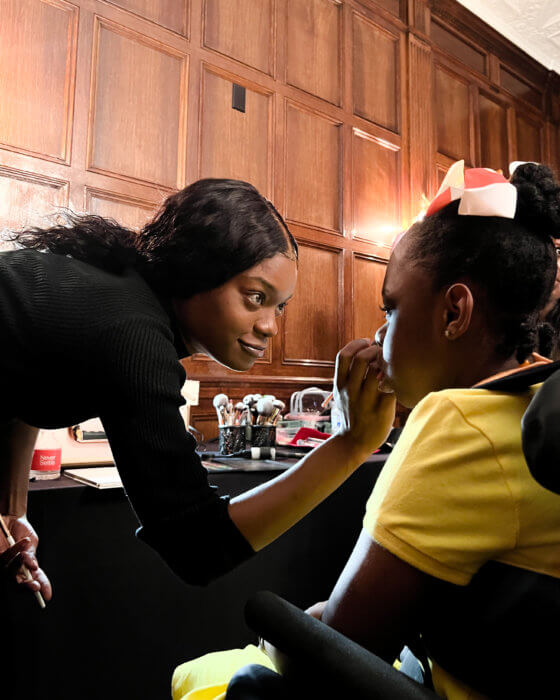
It’s an imperfect system, but, practically, it wouldn’t be fair to ask already-struggling public schools to take on students with such specific needs, Donahue said, and it wouldn’t be fair to the students either.
“With our kids, especially the ones we’re currently servicing with severe disabilities … the largest rehabilitation system for kids is not actually the medical system, but it’s actually the school system,” he said. “You may have a child who spends a month, three months, in a medical facility, if they have good insurance, they might get rehab. But then they’re transitioned back into the community and basically transitioned back into the school systems.”
The new Sunset Park location had a “light launch” in the spring to “work out the kinks,” Donahue said, but enrollment is now open and rolling — students can begin at any time, not just at the beginning of the school year. He emphasized that any Brooklyn families interested in the school can have their child evaluated for free to see if iBRAIN would be a good fit.
“Not only is there no cost to attend, there’s no cost to be assessed whether or not it’s the right fit,” he said. “I would just recommend people go to the website or call is and schedule an appointment or a tour.”



